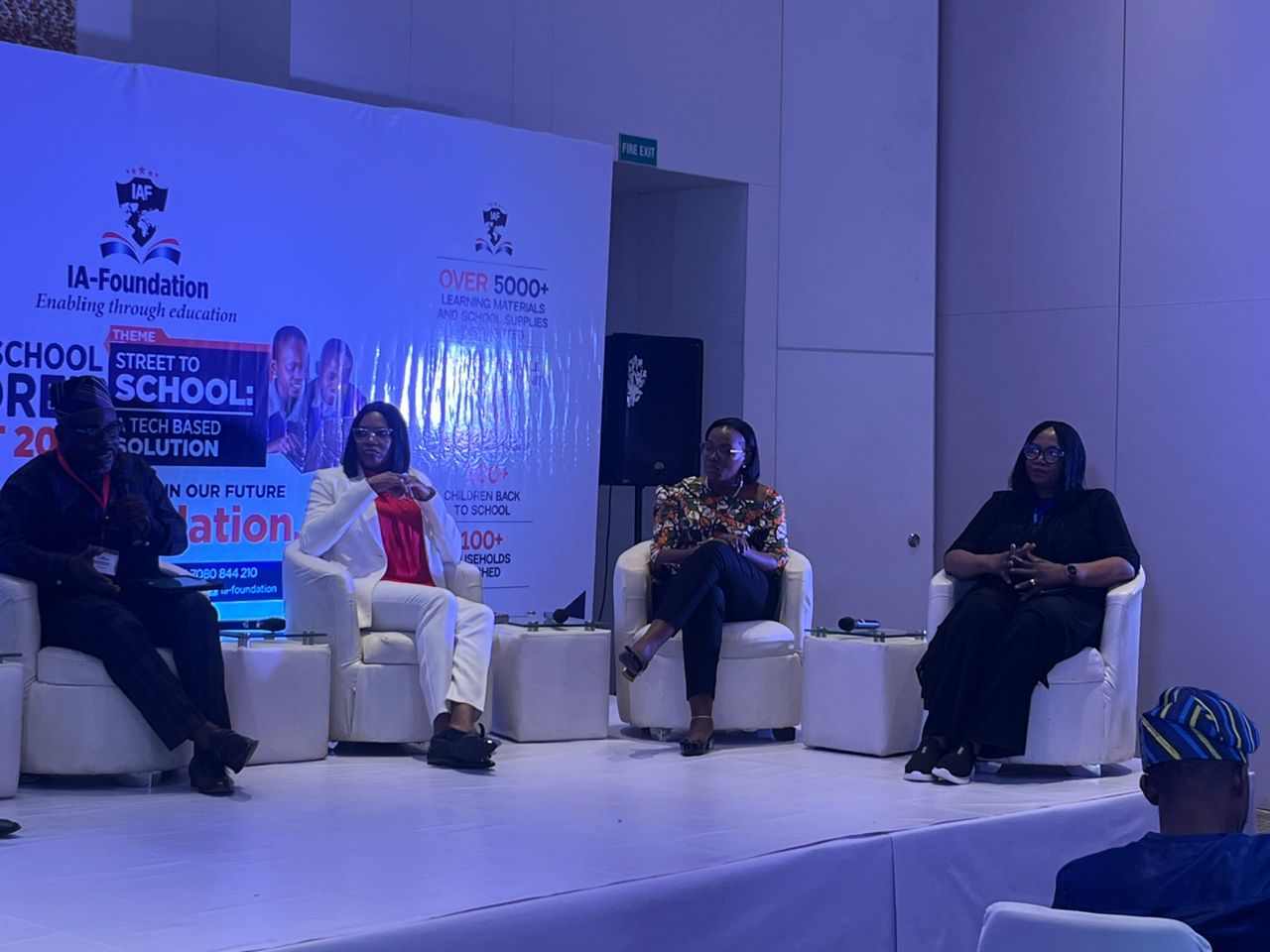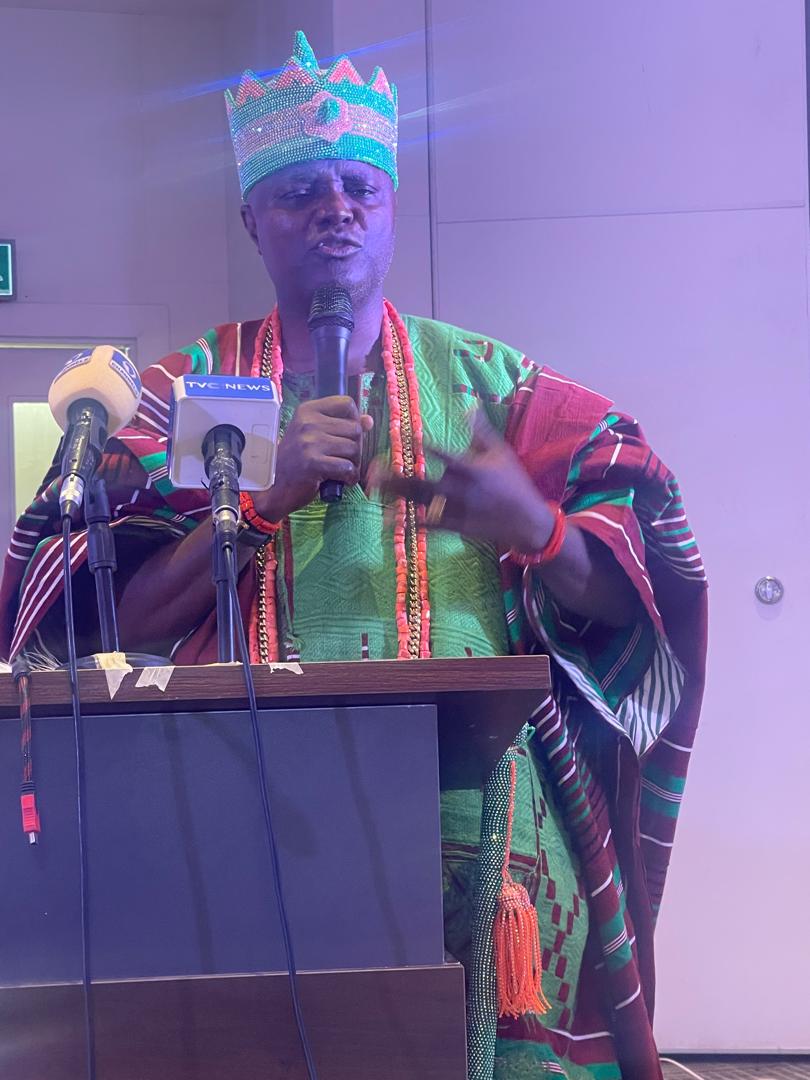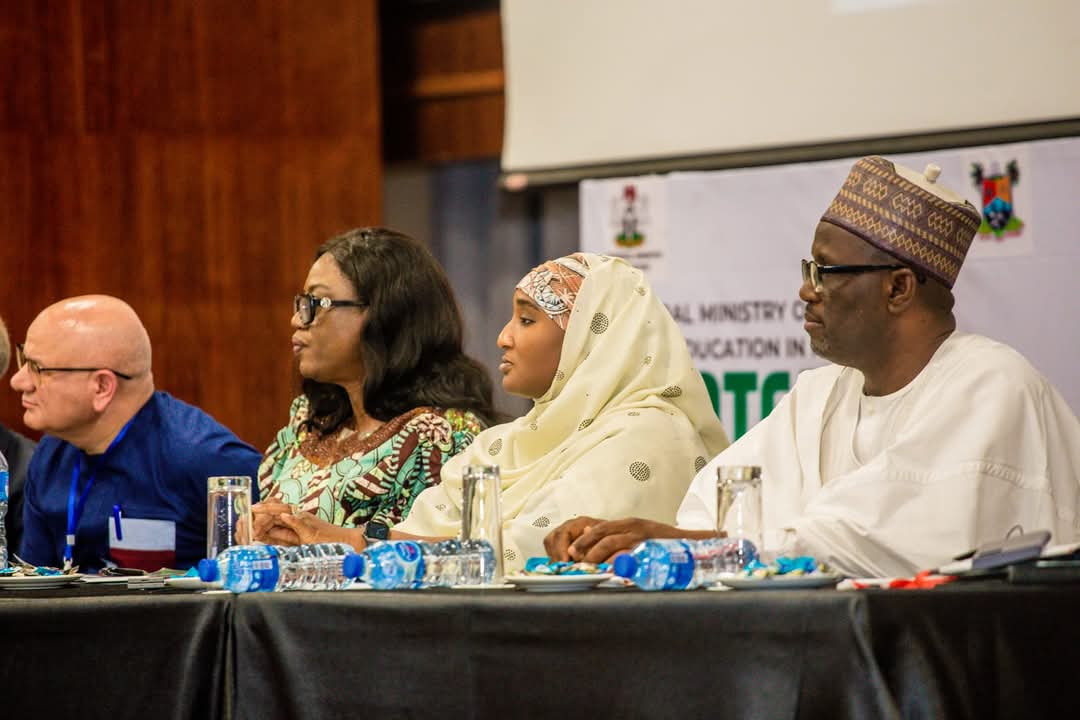Educators and stakeholders have called on the governments to implementation of policies too keep schoolchildren off the streets.
The call was made at the Out-of-School Children 2024 Summit, held at Marriott Hotel, Ikeja, Lagos, on Tuesday November 26, 2024.
Joining the stakeholders at the event, education advocate and CEO of Edumark Consult, Mrs Yinka Ogunde, stated that the urgent implementation of these policies would curb the alarming rate of out-of-school children in Nigeria.
Mrs. Yinka Ogunde emphasized the critical need for action to ensure no child is left behind.

The summit, organized by the IA-Foundation under the theme Street to School: A Tech-Based Solution, brought together experts, educators, and policymakers to address Nigeria’s status as the country with the highest number of out-of-school children globally.
Speaking at the event, Mrs. Ogunde, Coordinator of the Concerned Parents and Educators (CPE) group, stated, “We need to put in place the necessary policies to ensure that all efforts towards ensuring children stay off the streets don’t go in vain.”
Highlighting the dire statistics, she added, “Nigeria has one of the highest numbers of out-of-school children in the world, with an estimated 10.2 million children at the primary level and 8.1 million at the junior secondary school level. That makes it over 20 million children out of school. This number will definitely continue to increase if nothing is done about it.”



Mrs. Ogunde also praised IA-Foundation for organizing the summit, noting, “Kudos to IA-Foundation for organizing a summit to discuss this issue which is taking place today in Lagos.”
The event drew an impressive turnout of concerned stakeholders, highlighting widespread awareness of the growing crisis.
CPE was well-represented by Mrs. Ogunde and members including Toyin Sode-Idowu, Olubunmi Adewakun, Iyioluwa Layeni, and Dideolu Adekogbe.
Also speaking, former Lagos State Commissioner for Education, Adefisayo Folashade, highlighted a critical gap in Nigeria’s education sector, emphasizing that while the country excels at drafting policies, it often falls short in implementation. She called for a comprehensive, multidimensional approach that involves all stakeholders in addressing these challenges.
Speaking further, Adefisayo pointed out that educational facilities in Nigeria are underutilized, stressing that the focus should not only be on increasing school enrollment but also on delivering quality education to the children.
Dr. Aderonke Kujore, in her remarks, underscored the urgent need to equip students with digital skills, particularly in light of the rapid advancements in Artificial Intelligence (AI). She warned of potential challenges if students are unable to differentiate between AI-driven tools and human interactions, highlighting the importance of preparing the younger generation for a technology-driven future.
Speaking on the unintended consequences of technology, cybersecurity expert Wale Sangosanya emphasized the importance of safeguarding young learners. He stressed the need to identify potential risks associated with introducing technologies to students, particularly regarding exposure to inappropriate content and the protection of sensitive data.
The Chairman of IA-Foundation’s Board of Trustees, Mr. Oladiran Famakinwa, also spoke passionately, stating that no child should have to choose between survival and education. He highlighted the transformative power of education, sharing a personal story about how timely intervention reshaped his father’s life trajectory.
In her opening remarks, the Founder of IA-Foundation, Mrs. Ronke Adeagbo, expressed concern over Nigeria’s persistently high rate of out-of-school children, warning that the long-standing issue has begun to yield devastating consequences.
She noted that many of the neglected, uneducated children of the past have become today’s prostitutes, rapists, armed robbers, kidnappers, fraudsters, cultists, murderers, and bandits. According to Adeagbo, the societal cost of neglecting these children far outweighs the investments needed to secure their future through education.
Participants agreed that leveraging technology, fostering collaboration, and enacting robust policies are crucial to reversing the trend. The summit’s theme reflects the pressing need to transition children from the streets back into classrooms through innovative solutions.


Mrs. Ogunde concluded with a rallying call, “Together, we can change the narratives in the education sector, making sure every child in Nigeria is educated.”
As Nigeria faces the challenge of over 20 million children out of school, events like this summit are a crucial step toward developing sustainable solutions to ensure every child’s right to education is fulfilled.












